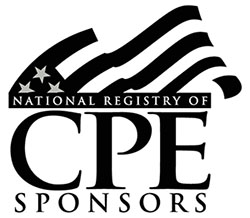Market participants often do not fully understand their NAESB Master Agreements until something goes wrong with a transaction and millions of dollars of company funds are at risk. By then, it is too late.
With the technological advancements in shale exploration, combined with increasing exports of natural gas, natural gas liquids ("NGL") and liquified natural gas ("LNG"), the volumes of natural gas traded in the physical and financial markets are significantly increasing. LNG expansion is increasing the global participation in the U.S. natural gas markets, including the number of market participants with different financial and operational capabilities. This, in turn, is increasing the importance of properly identifying, quantifying, and managing the legal, regulatory, operational, and financial risk associated with natural gas marketing.
The NAESB master agreement for purchase and sale of natural gas and NGL is the most frequently used umbrella agreement in the natural gas industry. Market participants across the natural gas marketing chain such as natural gas producers, gathering and processing companies, pipelines, power and gas utilities, and various commercial and industrial end users rely on the NAESB to memorialize their purchases, sales, and exchanges of natural gas and NGLs. In order to properly manage exposures using the NAESB master agreement, market participants need to understand the relevant legal, credit, and operational aspects of the natural gas business.
This seminar will provide a detailed review of the NAESB provisions and identify the most relevant shortcomings that can be remedied in the special provisions to the master agreement. It will also provide insight into the best practices and standards for drafting effective transaction confirmations, netting agreements, and asset management agreements frequently used in the gas marketing process.
This seminar also will outline practical steps to addressing the relevant operational issues such as natural gas capacity curtailments, force majeure events, natural gas buy-backs, and bookouts.
Additionally, the seminar will outline the best practices for managing various risk aspects of the Dodd-Frank Act, FERC and CFTC anti-manipulation rules, as well as the relevant court rulings impacting natural gas trading and compliance.
- NAESB MASTER AGREEMENT PROVISIONS:
- Review all standard provisions and identify potential shortcomings.
- Analyze some common NAESB special provisions and examine the best practices for ensuring legal certainty and enforceability of the NAESB documentation.
- Identify some practical steps to ensure enterprise wide consistency and uniformity of the NAESB provisions.
- Examine various operational factors impacting NAESB transactions including, but not limited to selling and buying natural gas at illiquid delivery points, pipeline curtailments and force majeure events, natural gas buy-backs and swing volume adjustments, asset management agreements and capacity releases, buying and selling intra-day gas, volumetric adjustments in physically settled transactions, and many more.
- Outline the best practices for drafting and negotiating NAESB special provisions and transaction confirmations, credit support documentation, and cross-product and cross-affiliate master netting agreement in the current regulatory environment.
- Identify enterprise-wide best practices to ensure a proper transaction execution, contract management, and regulatory compliance.
- Review some prohibited market practices such as disruptive trading practices, uneconomic trading, wash trading, and spoofing.
- Examine potential exposure areas caused by inadequate NAESB documentation.
- CREDIT RISK MANAGEMENT AND BANKRUPTCY CONSIDERATIONS:
- Understanding the NAESB implications on credit, collateral, and margin documentation.
- Developing and implementing consistent terms and conditions for responding to margin/collateral calls and demands for adequate assurance.
- Examining the pros and cons of various credit terms and conditions often embedded in standardized energy contracts and definitions including material adverse change, adequate assurances, and exposure calculation.
- The application of bankruptcy law and principles to forward contracts, physically settled commodity options, netting agreements, and exchange agreements in light of the latest regulatory changes.
- The latest court rulings on energy trading matters, including the status of cross-affiliate setoff provisions in energy trading agreements.
- IDENTIFYING THE BEST INDUSTRY PRACTICES FOR CREATING AND IMPLEMENTING EFFECTIVE NAESB DOCUMENTATION:
- Perform a cross-functional review to ensure that all NAESB documents including transactions confirmations, special provisions to the NAESB master agreement, NAESB credit support annex, and corporate guarantees are consistent with the best industry practices.
- Identify key steps required to ensure that all personnel including traders, originators, contract administrators, and credit and risk professionals are familiar, and stay compliant with the relevant NAESB provisions.
- See "What You will Learn".
Mr. Miki Kolobara, Esq.
Mr. Miki Kolobara, Esq. is the managing attorney at Kolobara Law Firm, LLC. He practices primarily in commodities and derivatives trading law with particular emphasis on energy trading, risk management, and compliance. Prior to founding Kolobara Law Firm, Mr. Kolobara spent 15 years working for several large energy companies where he assisted in creating and implementing trading policies and procedures, drafting standard trading and credit documentation, and training front and middle office personnel about legal and contractual aspects of energy trading. He has negotiated hundreds of master agreements and documentation for physical and financial transactions, as well as structured transactions for natural gas, electricity, coal, LNG, crude oil, and emissions allowances.
Mr. Kolobara serves on the Futures and Derivatives Law Committee of the American Bar Association, as well as the North American Energy Standards Board's contracting committee where he participated in drafting the NAESB standard master agreement for natural gas trading. Additionally, Mr. Kolobara is active in the International Energy Credit Associations' Contracts and Legal committee and its Dodd-Frank Act working group. As a member of the WSPP contracting committee, Mr. Kolobara participated in drafting of the WSPP standard master agreement for electricity trading.
Mr. Kolobara is a frequent speaker on topics related to energy trading, hedging, risk management, and compliance.
his two-day seminar will be held at the hotels listed below or can be conducted on-site at your facilities. The seminar will start promptly at 8:00 AM and will finish at 4:00 PM on the first day. On the second day, the seminar will resume at 8:00 AM and will finish at 12:00 PM (noon). The program includes continental breakfast, lunch, for day one and a continental breakfast and coffee break for day two. Attendees also receive a professionally produced seminar manual that can serve as a valuable office reference. Dress is casual for all seminars.
COVID 19 Information:
Please
click here for the PGS Covid-19 policy.
You can confirm each hotel's specific COVID 19 policy using the link(s) provided below.
The price for this comprehensive
two-day seminar
is
$1,795 (USD).
- Additional attendees and government employees receive a 10% discount.
-
Register 4 or more attendees and receive 20% Off.
Special pricing is available for groups of 5 or more.
If you want attendees to pay with separate credit cards or have other questions,
please call (843) 212-4038 for assistance.
Payment is due prior to the start of the seminar by Visa, Master Card, American Express, or corporate check.
Seminar fees will be charged to your credit card at the time of registration unless other arrangements have been made.
Please make checks payable to "PGS Energy Training" 26 Teal Lane • Hilton Head Island, SC 29926.
Cancellations will result in a credit that is good for 2 years which can be transferred to a colleague.
Substitutions may be made at any time.
For more information on PGS policies regarding administrative matters and complaint resolution, please contact our offices at (843) 212-4038.
This live group seminar is eligible for 12.0 CPE credits.
Be aware that state boards of accountancy have final authority on the acceptance of individual courses for CPE credit.
As of January 1, 2002, sponsored learning activities are measured by program length, with one 50-minute period equal to one CPE credit.
One-half CPE credit increments (equal to 25 minutes) are permitted after the first credit has been earned in a given learning activity.
You may want to verify that the state board from which your participants will be receiving credit accept one-half credits.
PGS Energy Training is registered with the National Association of State Boards of Accountancy (NASBA)
as a sponsor of continuing professional education on the National Registry of CPE Sponsors.
State boards of accountancy have final authority on the acceptance of individual courses for CPE credit.
Complaints regarding registered sponsors may be submitted to the National Registry of CPE Sponsors through its website:
www.nasbaregistry.org.
CPAs interested in attending any seminars should contact our offices for details on CPE credits granted and any prerequisite requirements.
PGS Energy Training is registered with GARP as an Approved Provider of Continuing Professional Development (CPD) credits.
If you are a Certified FRM or ERP, please record this activity in your Credit Tracker at
http://www.garp.org/cpd.
Please inform PGS Energy Training that you are a GARP CPE participant upon seminar registration.
The Global Association of Risk Professionals (GARP) is a not-for-profit membership association dedicated
to preparing professionals and organizations for making better-informed risk decisions.
GARP's membership represents more than 150,000 risk management practitioners and researchers at academic institutions,
banks, corporations, government agencies, and investment management firms in 195 countries and territories.
GARP administers the Financial Risk Manager (FRM) and Energy Risk Professional (ERP)
Exams – certifications recognized by risk professionals worldwide.
Visit
www.garp.org/cpd.
This Seminar will benefit a wide variety of organizations and professionals in both physical and financial natural gas, NGL, and LNG markets. Natural gas producers, gatherers and processors, pipelines and storage companies, utilities, natural gas, NGL and LNG marketers, commercial and industrial energy users, merchant generators, clearing brokers, and hedge funds, will gain valuable insights. This seminar will also be highly beneficial for energy executives, traders, originators, risk and credit managers, auditors, contracts administrators, government regulators, attorneys, schedulers and asset operators. Anyone who wants a solid understanding of what can be done now to minimize the legal and financial exposure under the NAESB transactions while, at same time, ensuring their companies' compliance, will benefit.
There are no prerequisites for this seminar.
PGS seminars are known for their clear explanations and in-depth content. Register for a PGS class today, and join the over 10,000 energy professionals who have already attended one of PGS's proven programs.
Intermediate level. CPE delivery method is "Group-Live."


